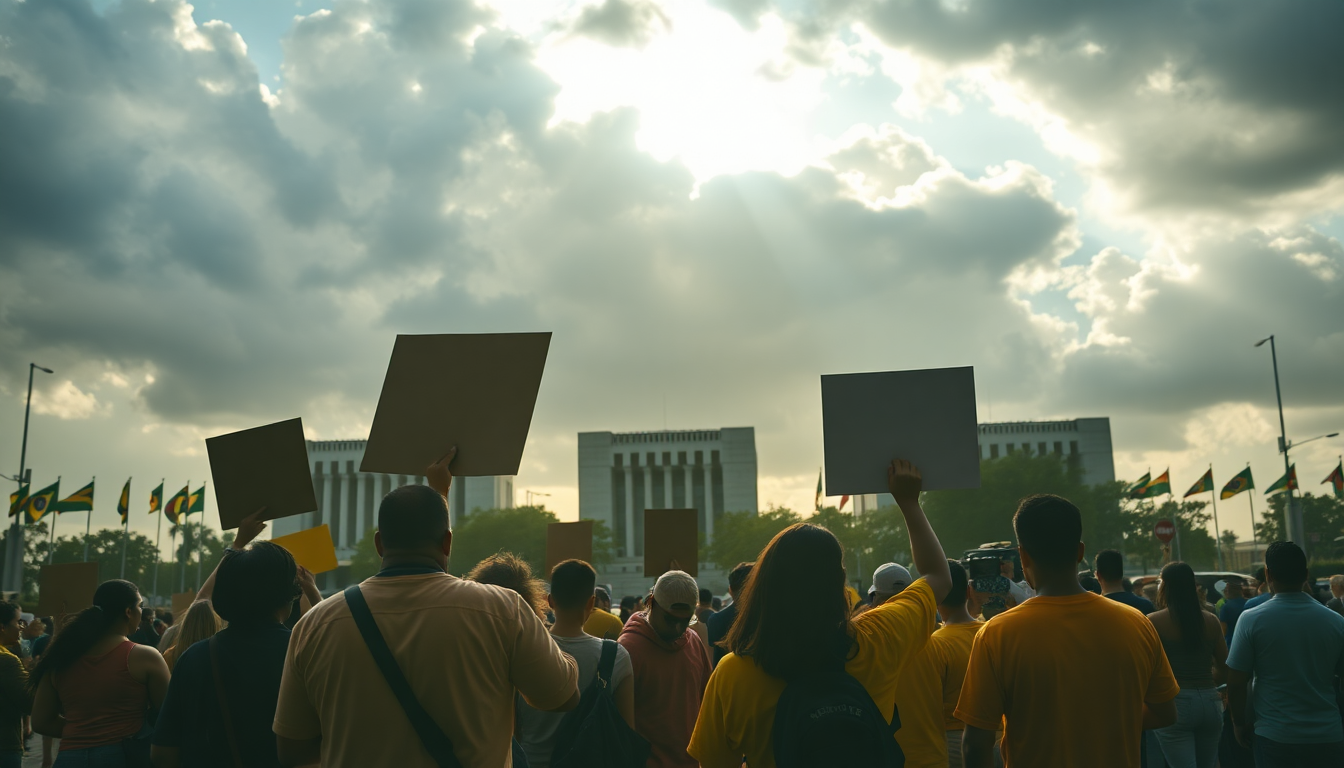Table of Contents
Brazil is currently in the midst of a political storm, and it’s not just about local headlines. Former President Jair Bolsonaro is facing some serious legal troubles that could have implications reaching far beyond the country’s borders. The Brazilian Supreme Court’s recent moves, especially those by Justice Alexandre de Moraes, have ignited fierce debates and controversies both at home and internationally.
In fact, with U.S. Secretary of State Marco Rubio recently announcing visa restrictions on de Moraes and his associates, it raises some big questions: How do domestic politics intertwine with international relations?
The Political Landscape in Brazil: A Closer Look
Brazil’s political scene has been nothing short of a rollercoaster, especially since President Luiz Inácio Lula da Silva took office in January 2023. Bolsonaro, who held the presidency from 2019 to 2022, is now grappling with multiple legal challenges, including accusations that he tried to orchestrate a coup to reverse the election results.
The Supreme Court’s recent directives against him, such as banning him from contacting foreign officials and using social media, demonstrate just how serious the situation has become.
Justice Alexandre de Moraes has stepped into the spotlight, overseeing legal actions that have drawn sharp criticism for being politically charged.
Rubio’s comments about a “political witch hunt” highlight a growing belief that Brazil’s judicial system is being used for political maneuvering, raising alarms about the potential erosion of the rule of law. This has sparked widespread discussions about what these actions mean for Brazil’s democracy and its relationships with other nations, especially the United States.
How the World is Reacting
The U.S. response to Brazil’s ongoing turmoil has been particularly striking. Secretary Rubio’s announcement of visa restrictions against de Moraes and his family signals a deepening concern among U.S. officials about how Brazil’s internal strife could affect international relationships.
It’s a clear message: there’s a need to hold foreign officials accountable for actions that threaten fundamental freedoms.
Adding another layer to this complex scenario is former President Trump’s vocal support for Bolsonaro. Trump’s assertion that Bolsonaro is a victim of an unjust legal system resonates with many in Brazil who feel disenfranchised under the current administration. His claims of humiliation and his labeling of de Moraes as a dictator hit home for a segment of the population that’s feeling left out.
These developments prompt us to question Brazil’s future role in South America and its relations with major powers like the U.S. The increasingly combative exchanges between Brazilian officials and U.S. leaders suggest that the road ahead will be rocky, affecting not just bilateral relations but also Brazil’s standing on the global stage.
What Lies Ahead for Brazil?
As we look to the future, it’s clear that Brazil’s political climate is anything but stable. The ongoing legal challenges against Bolsonaro are bound to attract significant public interest and international attention. The effects of these events go beyond the courtroom; they touch on critical issues of governance, democracy, and human rights.
The international community will be keeping a close eye on Brazil as it navigates through this turbulent period. Economic consequences could loom large, especially with Trump’s threats of tariffs, which may have lasting effects on Brazil’s economy if diplomatic relations worsen. Both investors and analysts will need to stay alert to how these legal battles unfold, as they will undoubtedly shape market perceptions and investment strategies.
Ultimately, the future of Brazilian politics and its impact on international relations hinges on the outcomes of these legal challenges and the reactions from both domestic and international stakeholders. The interplay between local political dynamics and global diplomatic considerations will undoubtedly remain a focal point in the coming months. How will Brazil chart its course in this complex landscape? Only time will tell.





